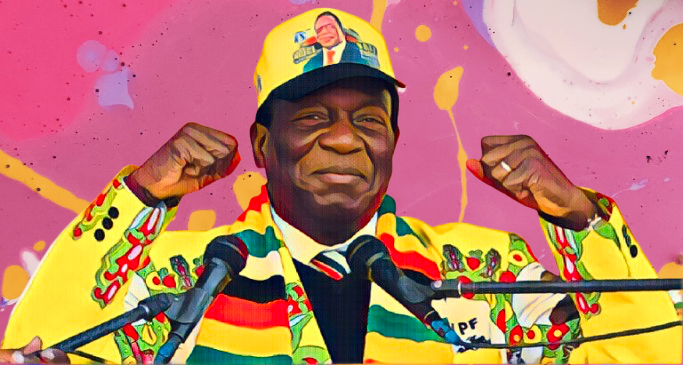KEY POINTS
- The government of Zimbabwe uses social media to attack people who don’t agree with them.
- The Varakashi smear campaign in Zimbabwe mostly goes after women.
- Social media sites are becoming unsafe for people who disagree with the government.
People are accusing Zimbabwe’s government, led by President Emmerson Mnangagwa, of running a cruel and organized smear campaign on social media to silence women who speak out for human rights and politics.
The campaign, which mostly happens on X (formerly Twitter), uses fake accounts, threats of sexual violence, and abuse of women to make the other side look bad.
People say that Varakashi, a group of online trolls, is behind these attacks that the government supports. These digital enforcers often work in secret, pretend to be famous people, and try to silence people who disagree with them by spreading false information and harassment.
The Varakashi smear campaign is getting worse on the internet
Ghost accounts are now common tools for abuse, and one even pretended to be Joice Mujuru, who used to be Vice President. People say that George Charamba, who works for Mnangagwa, runs two fake X accounts, @Jamwanda2 and @dhonzamwamba007, that have sent out false and inflammatory messages to female activists.
In 2022, @Jamwanda2 was banned, but Elon Musk brought it back when he bought Twitter. Since then, there have been a lot more of these kinds of accounts, and they often lead to physical and sexual violence. One tweet, later deleted after sparking public outrage, threatened to rape a female activist.
Constance Kasiyamhuru of the University of Johannesburg did a study in 2023 that said the Varakashi work to “discipline” and shut down anti-Zanu PF stories online by using trolling, ridicule, and false information.
Digital attacks on women in Zimbabwe’s opposition
Tendai Ruben Mbofana, a writer and activist for social justice in Zimbabwe, says that the abuse online is systemic and very gendered. He said, “These smear campaigns aren’t just personal attacks; they’re a way to make us look bad, shut us up, and cut us off.”
He said that the attacks often include insults based on gender, sexual threats, and language that shames women in order to get them to leave online activism spaces. “It makes people scared,” Mbofana said.
Sophia Gwasira, elected Mutare’s first female mayor in 2023, said she and others stopped engaging in opposition politics due to the coordinated online abuse they faced. She says that Zimbabwean women in politics are no longer safe on social media.
Fighting back against organized digital censorship
Promise Mkwananzi, a spokesperson for the opposition Citizens Coalition for Change (CCC), said that they are keeping an eye on and exposing the fake accounts and teaching their members how to fight back against harmful stories. He said, “These trolls use tax money to threaten and insult women who speak out.” But we are still determined to unite people and work for a better Zimbabwe.
The Varakashi smear campaign in Zimbabwe doesn’t just go after women. Men who are critical of Mnangagwa’s government, like Mbofana himself, have also been harassed by anonymous accounts that are thought to be connected to high-level government officials.
Mnangagwa came to power in a coup in 2017 and promised to make the country more democratic. Now, people are saying that he is running a regime that is worse than Robert Mugabe’s. According to reports, the ruling Zanu PF party is thinking about changing the constitution so that he can stay in office after 2028.
At the same time, Varakashi keep sending propaganda to X praising Mnangagwa’s so-called accomplishments and threatening and silencing people who want democracy.


